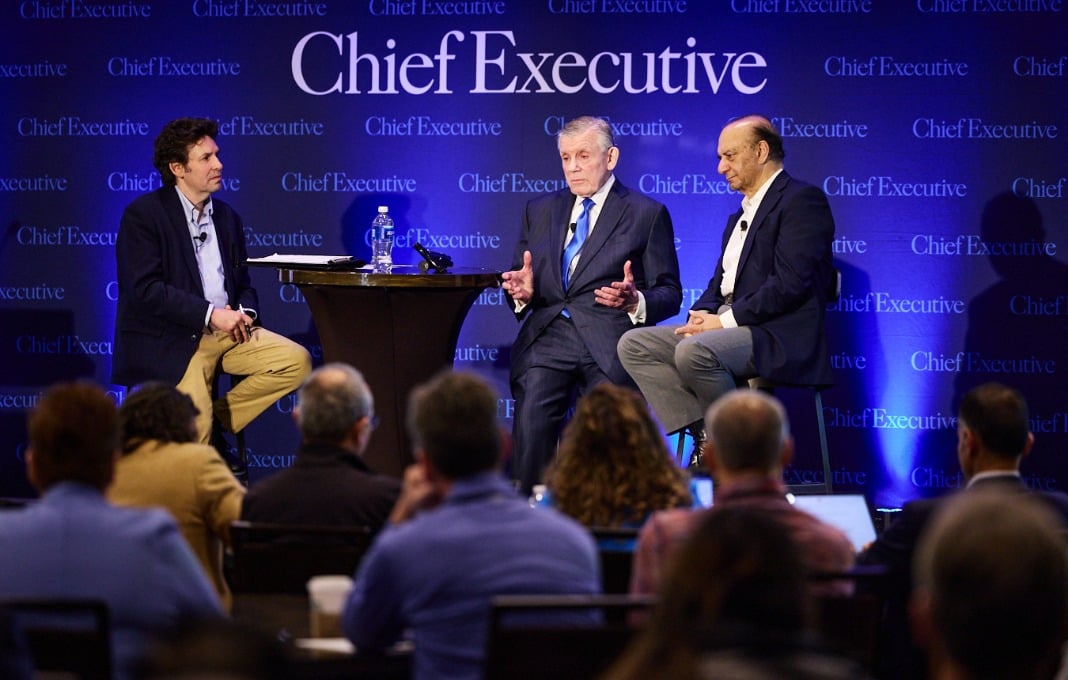Two of American manufacturing veterans—Nick Pinchuk, chairman and CEO of Snap-on, and Farooq Kathwari, chairman, president and CEO of Ethan Allen Interiors—have navigated their organizations through decades of disruption, transformation and uncertainty. At the 2025 Manufacturing Leadership Summit, they offered not just tactics but a philosophy of leadership that transcends today’s headlines.
The Unwavering Center
In times of chaos, your conviction becomes your company’s greatest asset. “A CEO’s biggest task is to lay belief,” Pinchuk insists. “If the trumpets sound uncertain, who will prepare for war? It’s as true today as it was 2000 years ago. You have to be a certain trumpet or people will lose faith.”
This doesn’t mean projecting false confidence. Kathwari balances this with authentic transparency: “It’s very important to get the message across to your team that there is stability, that we want to take care of them. Yet, also be frank with them to say that if business is slow, we might have less work to do. You gotta be honest.”
When external forces create anxiety, your unwavering leadership becomes the north star by which your organization navigates. Without it, even your most brilliant strategies become meaningless in execution.
Embrace Reality, Then Transform It
Great leaders don’t fight market reality—they harness it. Rather than lamenting changing customer behaviors, they identify new opportunities hiding within those shifts. “People aren’t buying tool boxes at the same number they were before because they have to pay them off over three to five years. So they buy more hand tools or power tools. So we pivot our development to those areas.”
Kathwari similarly approaches change with pragmatic wisdom. When his team suggested promotions to boost declining traffic, he tested assumptions first: “I thought about it and said no, because the people who are coming in are buying. Folks who are just holding back—giving more promotion isn’t gonna make a difference.”
The takeaway: See reality as it is, not as you wish it were, then find the opportunity within that reality. There’s always a path forward for those willing to adapt without compromising their core strengths.
Build Principles Into Your Practices
Amidst disruption, systematic leadership approaches keep organizations focused when everything else seems chaotic. Kathwari shared his remarkably effective practice of having 50 leaders report weekly on five critical areas—a discipline maintained for decades.
“They have to talk about what they have done to improve talent. Second, they have to talk about what they have done to services across the board. Third, they have to talk about what have they done doing technology,” Kathwari explained. “When you focus on these critical things week after week, it creates a culture with discipline.”
In the end, it’s all about having leadership principles you can bank on. For Pinchuk, those come from the poet Valmiki, who wrote them down 500 years before the common era in the Indus Valley.
“Gather to you people of capability and courage,” said Pinchuk. “Look to their welfare before you look to your own. Be gentle of speech, even with those who deserve sternness, and never surrender your judgment to completely to anyone, even those you trust. I try to follow those things.”








